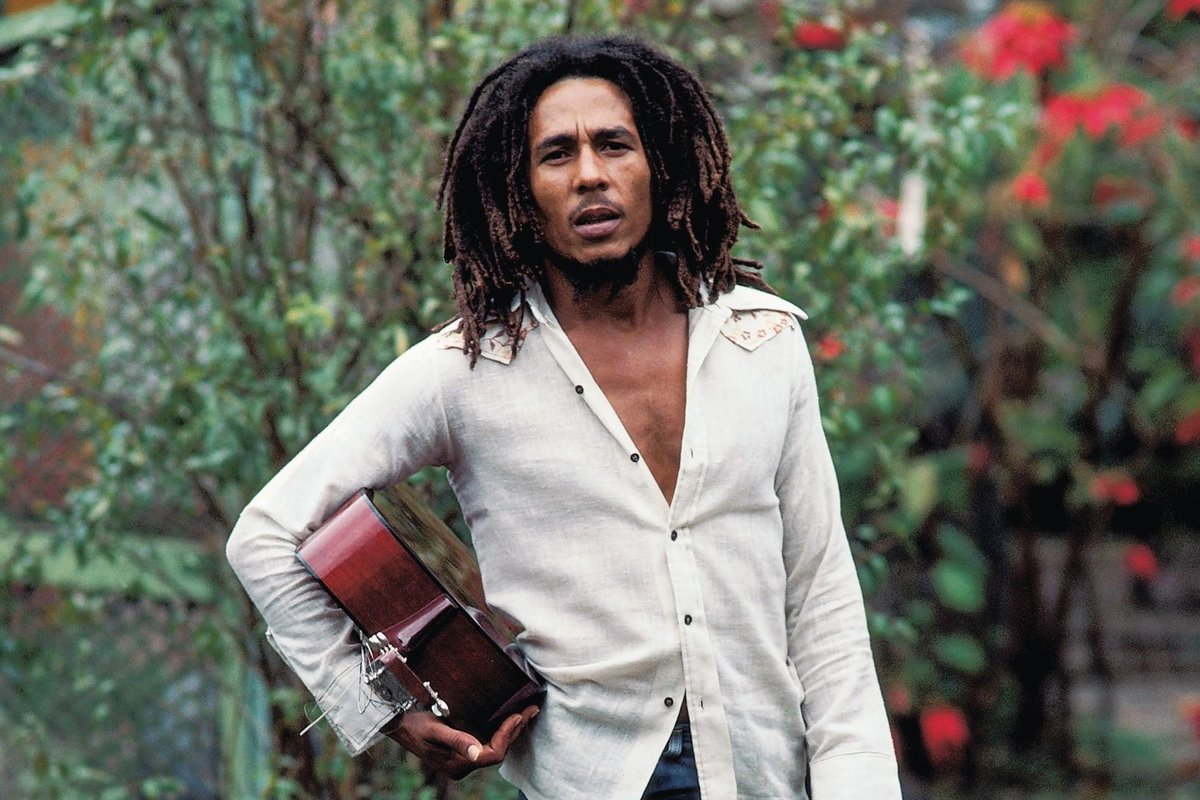Bob Marley died on this day in 1981. Known best as the Jamaican herb smoking, Rastafari Singer-Songwriter. But underneath this popular image was a man devoted to Pan-Africanism and the end of Imperialism. #BobMarley #Jamaica 

Marley was born during a time of extreme poverty in Jamaica and was part of this impoverished class. Jamaica only became independent in 1962 and immediately adopted capitalism and was forced into an imperialist relationship with England. 

During this time, many in poverty moved to Jamaica’s capital Kingston, where they were forced to live in the sprawling shanty town of Trenchtown. Bob Marley, and fellow Wailer, moved to Trenchtown to finish their education and make a living. 

Marley supported the developing Rastafarian movement through his musical connections and with its philosophy of ‘Pan-Africanism’ and reverence for Haile Selassie I, the Ethiopian emperor. The movement was brutally repressed in Jamaica. 

Beatings, torture and even executions continued after independence, with the state-sponsored murder of several Rastafarians during what became known as the Coral Gardens Massacre in 1963, estimates place the number of detained individuals "as high as 150" most disappeared. 

The endemic poverty and repression pushed Marley’s opposition to injustice and inequality. Michael Manley, the left-wing People’s National Party (PNP) proposed a radical program to eradicate illiteracy, the appalling health conditions, and slum housing, and for job creation. 

The elections of 1972 saw Manley elected and Marley played a role in this election campaign. Manley made international connections to protect Jamaica’s bauxite production, forged ties with Castro’s Cuba and supported the war in Angola against South African backed forces. 

Jamaica was flooded with guns by the CIA, the US spy agency. This led to petty criminals developing into political gangs backing the right-wing leader of the Jamaican Labour Party, Edward Seaga. 

Just days before the ‘Smile Jamaica’ concert, aimed at calming down the political violence in 1976, he, along with his wife Rita, his band manager and an employee, were the victims of an assassination attempt. Manley won election of 1976 and continued with his reforms. 

Manley had the potential to popularize the ideas of socialist change among a militant generation of black youth. Black members of the Labour Party Young Socialists, under the leadership of Militant supporters the opportunity and organized a solidarity campaign. 

This campaign mobilized hundreds of black youth and warned Manley of the danger of not ending capitalism in Jamaica. He was forced into ‘economic restructuring’ by the IMF, resulting in cuts to the reform programme and increased economic hardship. He lost the 1979 election. 

Marley's songs have a deeply revolutionary message and paint a picture of a beautiful potential world. Celebrate his life today by listening to his music, abiding or not. 



400 Years
Slave Driver
No More Trouble
Small Axe
Fussin and Fighting
• • •
Missing some Tweet in this thread? You can try to
force a refresh

 Read on Twitter
Read on Twitter










